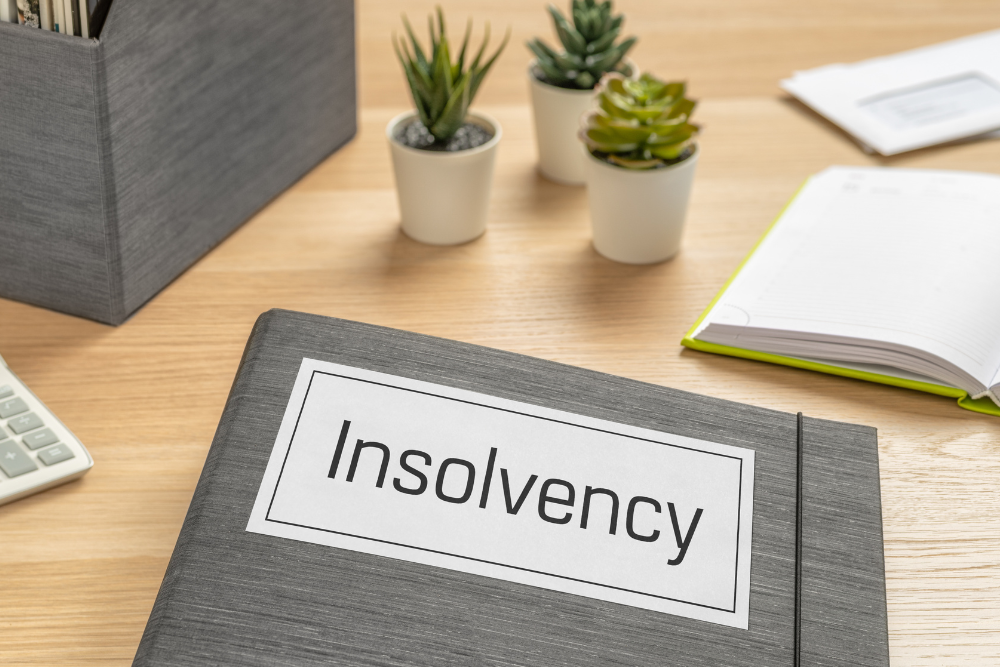The 9-Minute Rule for Insolvency Practitioner
The 9-Minute Rule for Insolvency Practitioner
Blog Article
Insolvency Practitioner Fundamentals Explained
Table of ContentsInsolvency Practitioner Can Be Fun For AnyoneThe Ultimate Guide To Insolvency PractitionerThe Buzz on Insolvency PractitionerThe 10-Minute Rule for Insolvency PractitionerAll about Insolvency Practitioner
Whether you need to make use of an insolvency professional (IP) to liquidate your company depends on numerous elements. While involving an insolvency practitioner for all kinds of liquidation is not a legal need, doing so can typically streamline the procedure and guarantee conformity with legal needs. Liquidating a business is a crucial choice that comes with substantial repercussions.
It is a treatment made use of when a business does not have any lenders, or all of their creditors can be paid off completely with statutory rate of interest. Recognizing the various kinds of bankruptcy procedures can aid you establish the very best strategy for your company's liquidation or other official insolvency treatments itself.
This is obligatory in order to follow legal requirements - Insolvency Practitioner. This is since IPs have the needed qualifications and experience to guarantee that the liquidation process is conducted in conformity with all relevant regulations and laws. By involving an accredited insolvency professional, you can have satisfaction understanding that your firm's liquidation procedure will be taken care of expertly and in conformity with the pertinent legal needs
The Single Strategy To Use For Insolvency Practitioner
The bankruptcy expert is designated as a liquidator and is accountable for handling the firm and liquidator's financial debts exceptional liabilities and properties. This procedure entails selling the business's properties and distributing the proceeds to financial institutions. Upon completion of the procedure, the firm is removed from the register at Companies Residence.
Failing to do so can lead to personal responsibility for the business or supervisor for the financial institution's financial debts. Volunteer liquidation, that includes Financial institutions' Volunteer Liquidation (CVL) and Participants' Volunteer Liquidation (MVL), is initiated by the company's directors and shareholders when they can no much longer pay their financial obligations. In a CVL, the insolvency practitioner is designated as the liquidator, in charge of handling company financial debts and all firm possessions.

Not known Facts About Insolvency Practitioner
By analyzing the experience and experience of possible insolvency specialists, you can make sure that you pick a practitioner who has the needed credentials to manage your firm's liquidation process successfully. While bankruptcy practitioner-led liquidation is often the most suitable program of activity for business dealing with bankruptcy, there are alternate strategies to take into consideration, such as striking off and partial liquidation.
It's essential to assess all available options before choosing the next best solution or course of activity for your organization. Striking off firms' signs up is a much more uncomplicated and cost-efficient means to shut inactive or little companies with no debts or properties. To strike off a firm, its name is eliminated from the Business House register by submitting kind DS01.
Prior to choosing striking off, it's essential to click to read weigh the benefits and disadvantages of this method and consider whether it's the appropriate option for your company. Partial liquidation is another choice to insolvency practitioner-led liquidation, in which a company sells off specific assets and responsibilities while remaining to run with the continuing to be possessions and obligations.
A Bankruptcy Specialist will certainly be able to suggest you of the very best course of activity to take and make certain that whatever runs smoothly. Unfortunately, it is not possible to liquidate a company without a liquidator. Appointing an authorized insolvency expert is needed for the process of volunteer liquidation to begin.
Insolvency Practitioner Fundamentals Explained
It is feasible to close and liquidate your firm without utilizing a liquidator, provided your company is solvent and you satisfy the qualification needs to liquify or liquidate it. If your business is bankrupt, you might be called for to make use of a liquidator and begin formal insolvency procedures. Right here are some various other helpful write-ups regarding company liquidation in the UK:.
Being in a position where you're unable to pay your company's lenders is very difficult. In an effort to prevent boosting the degree of financial obligation, lots of firms attempt to discuss straight with their lenders and consent to an informal arrangement. If the debt is quite small and owed to one financial institution, and the financial institution is being participating, becoming part of an informal debt arrangement is most likely the most effective option, instead than browsing the web for 'a bankruptcy practitioner near me'.
On the various other hand, if there are numerous financial institutions and the level of financial obligation is huge, creditors may not be so willing or participating. To avoid liquidation or personal bankruptcy, it is much better to employ an insolvency practitioner to create official proposals and negotiate with financial institutions on your part.
Some Of Insolvency Practitioner
Whilst it is a way to take care of debt, there are substantial risks entailed with this sort of financial debt plan - Insolvency Practitioner. If a financial institution wants to become part of a casual plan (IA) wherein the borrower has accepted make regular, if reduced, settlements to pay back the financial debt, it's important to stay with the arrangement

The creditor is within their legal rights to back out of the arrangement and petition the courts for your company to be liquidated at any type of time. An official arrangement that has been suggested by a bankruptcy expert in your place, and agreed by a lender, gives a much more secure option.
Report this page